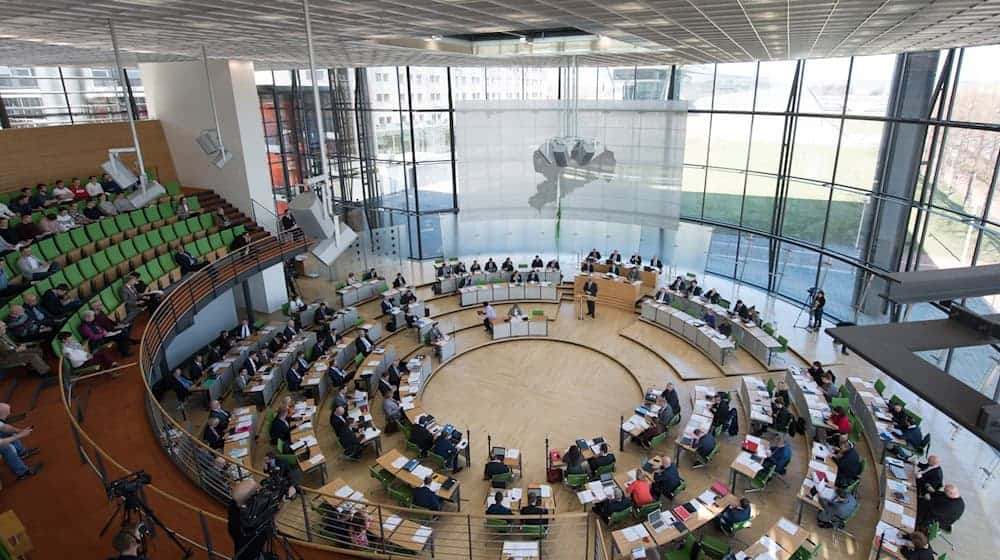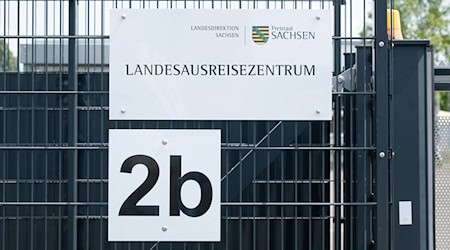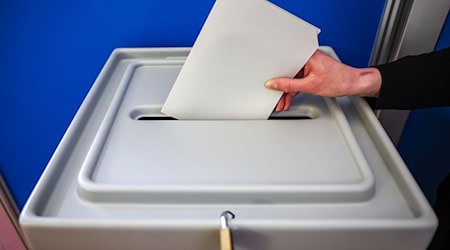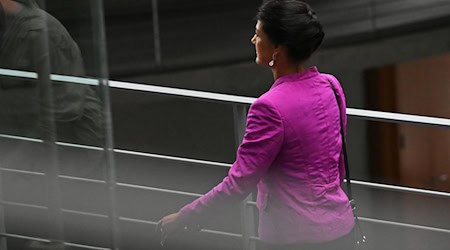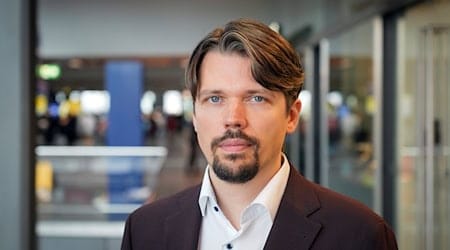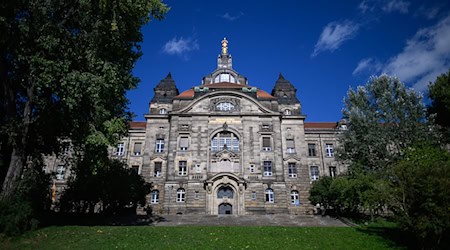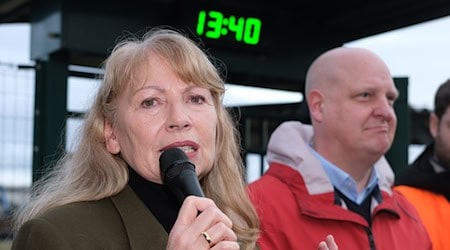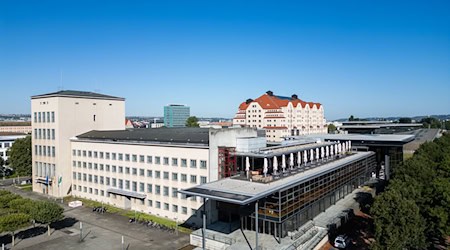After the state elections, the search for a viable government majority for the next five years begins in Saxony. This morning, the state chairmen and general secretaries of the parties in Dresden want to comment on the election results. Top candidates in Berlin will also comment on the result. Some parties have scheduled their first executive meetings for the evening.
According to the provisional results, the CDU once again came out on top with 31.9% of the vote. The AfD came second with 30.6 percent. The Sahra Wagenknecht Alliance (BSW) achieved 11.8% from a standing start and is likely to have a say in the future formation of government. The SPD received 7.3 percent and the Greens 5.1 percent. The Left Party only made it into the state parliament with 4.5 percent because they won two direct mandates in Leipzig - a clause then applies according to which they enter parliament according to their second vote result, even though they were below the five percent threshold. Voter turnout was 74.4 percent.
The AfD, which has been classified by Saxony's Office for the Protection of the Constitution as a confirmed right-wing extremist party, has 41 seats in the state parliament (38), while the CDU has 42 seats (45). The BSW has 15 MPs. The SPD receives 9 seats (10), the Greens get 6 seats (12), as does Die Linke (14). The Free Voters, who received 2.3 percent, are represented in parliament by one MP who won a direct mandate. The previous coalition of the CDU, Greens and SPD therefore no longer has a majority.
Kretschmer: Forming a government will not be easy
"None of this will be easy," said incumbent Prime Minister Michael Kretschmer of the CDU on Sunday regarding the search for a new coalition. "But one thing is certain: with many talks and the will to do something for this country, we can succeed in using this election result to give Saxony a stable government that serves the country and leads the way with humility."
The leading AfD candidate in Saxony, Jörg Urban, announced his intention to keep up the pressure on a future state government as an opposition party. "We will do what we have been doing all these years here in the Saxon state parliament: We will drive this government before us."
BSW does not want to be a "stirrup-holder" for prime ministers
The Sahra Wagenknecht Alliance (BSW) called the result "historic" and made it clear that it would not be available as a "stirrup-holder for the current prime minister". "With us, there will only be a new start. We will not be the majority procurers," said party chairwoman Sabine Zimmermann with a view to possible coalition talks.
SPD leader Henning Homann described his party's result as a respectable success. According to the polls, the SPD had feared for its re-entry into the state parliament. "We have always said that we care about Saxony," he emphasized. The Saxon SPD does not want to get lost in discussions about national or global political issues, but rather focus on the Free State.
In the opinion of Green Party leader Christin Furtenbacher, the election result is not what the people of Saxony deserve. Many political forces had tried to push the Greens down with all their might, said parliamentary group leader Franziska Schubert. "What did we do? We stayed on top."
Left Party leader calls for a fundamental new start for his party
The Left Party in particular is facing a thorough reappraisal of the result. Without the direct mandates they won, they would have disappeared from the state parliament - for the first time in an East German state parliament since reunification.
State leader Stefan Hartmann called for a fundamental new start for the party. With their entry into parliament via the basic mandate clause, the Left Party ensured that the current coalition of CDU, Greens and SPD is no longer possible - unless the coalition is tolerated by the Left Party.
On election night, Leipzig political scientist Hendrik Träger considered a minority government of CDU and SPD tolerated by the BSW to be worth considering. "Such government formats are common in Scandinavian countries, for example. In this respect, it is advisable to look beyond the borders of Germany."
Political scientist Johannes Kiess predicted an extremely difficult government formation in Saxony and Thuringia. The CDU's "anti-Ampel election campaign" had also contributed to this. In addition, the BSW is a very unclear new variable in the game. "Even if the BSW decides to play a constructive role, it is questionable how stable this participation will be next year before the federal election," Kiess told the German Press Agency.
Scientist: Not good news for political culture
The scientist said: "The AfD and also the BSW were able to mobilize their potential in the current social mood, while the SPD and Green milieus are rather demobilized. The CDU is a long way from entering into a coalition with just one partner. This is not good news for the political culture in Germany."
Copyright 2024, dpa (www.dpa.de). All rights reserved

